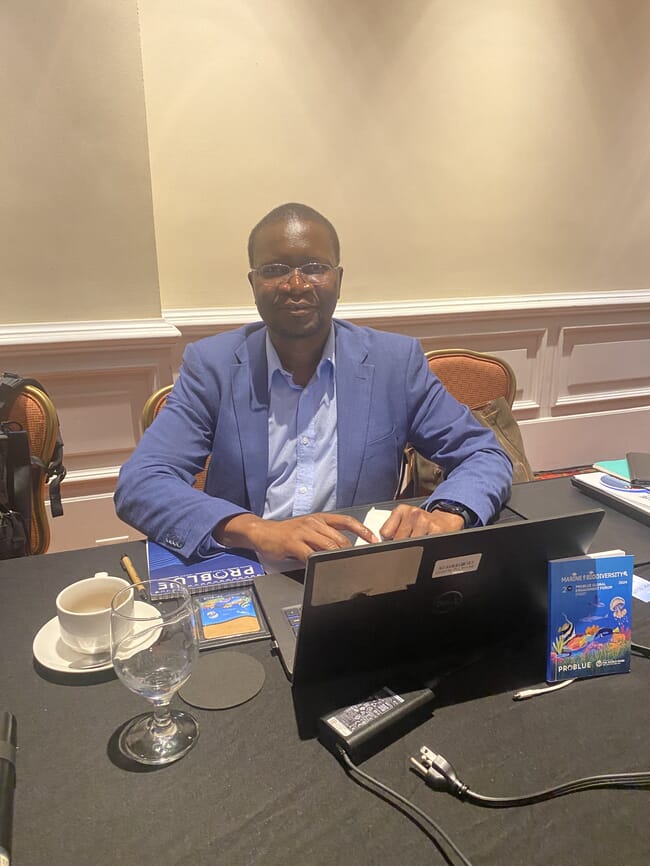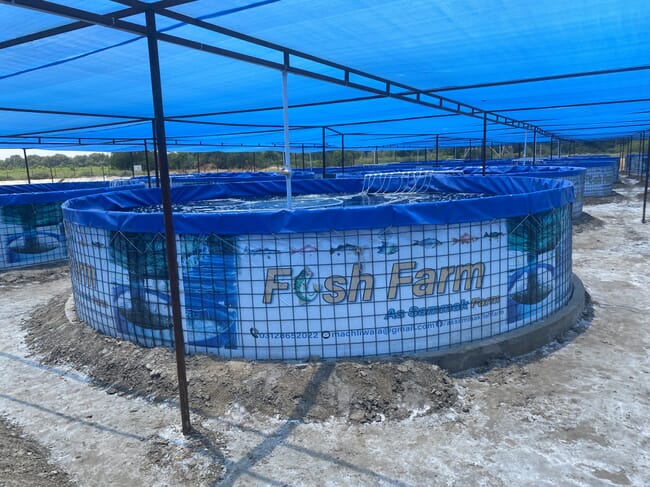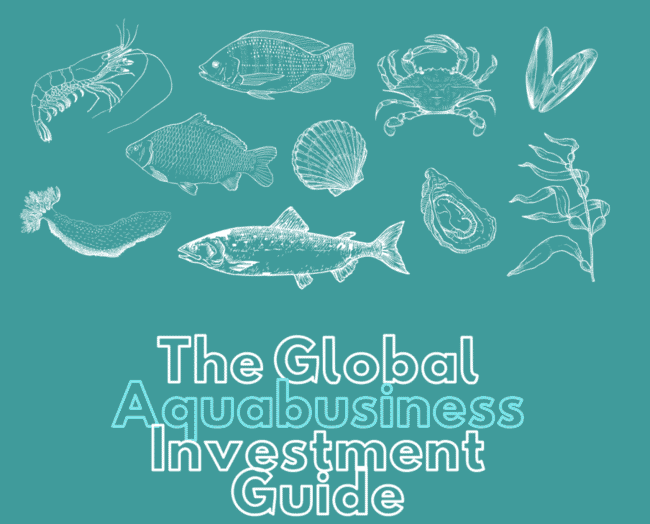Called The Global Aquabusiness Investment Guide, the new publication is targeting aquaculture practitioners, investors and governments and “aims to develop and disseminate best practices in aquabusiness development, with a view to ensuring economic prosperity, social well-being, and environmental sustainability”.

“We’re focusing on practical actions that people need to do to organise aquaculture – be it on a country scale or a company scale,” one of the guide’s key contributors, Harrison Karisa, who is a senior aquaculture specialist at The World Bank Group, explained to The Fish Site at the sidelines of the recent Blue Food Innovation Summit in London.
The platform has been funded by the multi-donor trust fund Problue and, according to Karisa, it was compiled in order to help ensure that the World Bank’s clients only invest in aquaculture operations that follow best practices when it comes to economic, environmental and social issues. On the flip side, it can be used by commercial farmers in order to improve their production systems and potentially raise investment.

The report's authors interviewed aquaculture operators around the world © Harrison Karisa, World Bank
The information contained in the guide stems from engagement with leading aquaculture stakeholders around the world and includes a review of case studies representing successes, challenges and lessons learnt in aquaculture investment and aquabusiness development. As a live document, it is due to be updated on a regular basis, in order to keep pace with technological advances in the sector.
“It’s more practically-orientated and goes down to farmer level, but also applies to donors and development organisations as well as banks, who are worried about how to de-risk the aquaculture sector. The guide can act as an assurance,” Karisa explains.
Another section covers some of the ways aquaculture businesses can attract funding.
“We want to guide people on where they can get financing and how governments can create a good environment for business growth,” Karisa notes.
“The first step is to ensure both public and private sector clients can find it profitable to invest in – and do – aquaculture sustainably. It will also make it easier for them to get loans from the World Bank or other financiers, as it gives us confidence in them, and it means we can avoid some of the fundamental discussions which stem from lack of knowledge of the aquaculture industry,” he adds.
Follow-up
In the wake of the report’s publication, Karisa says that the World Bank intends to talk through the report with key stakeholders through a regional approach, including development organisations and donors, local banks, the FAO, The Global Environmental Facility and other regional organisations working in aquaculture development, such as the Network for Aquaculture Centres in Asia, the AUDA NEPAD, AU-IBAR and the European Commission.

The guide will be regularly updated




